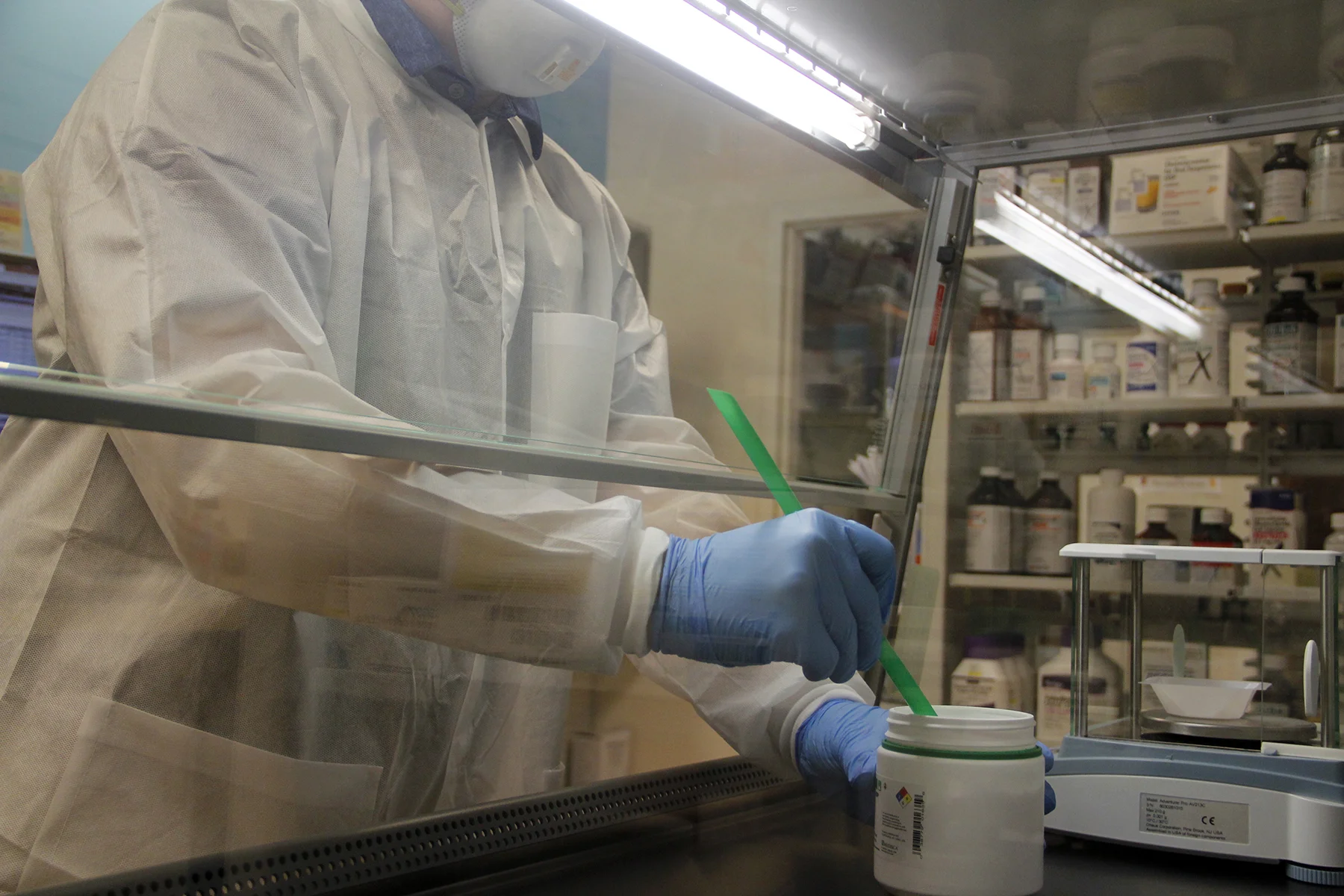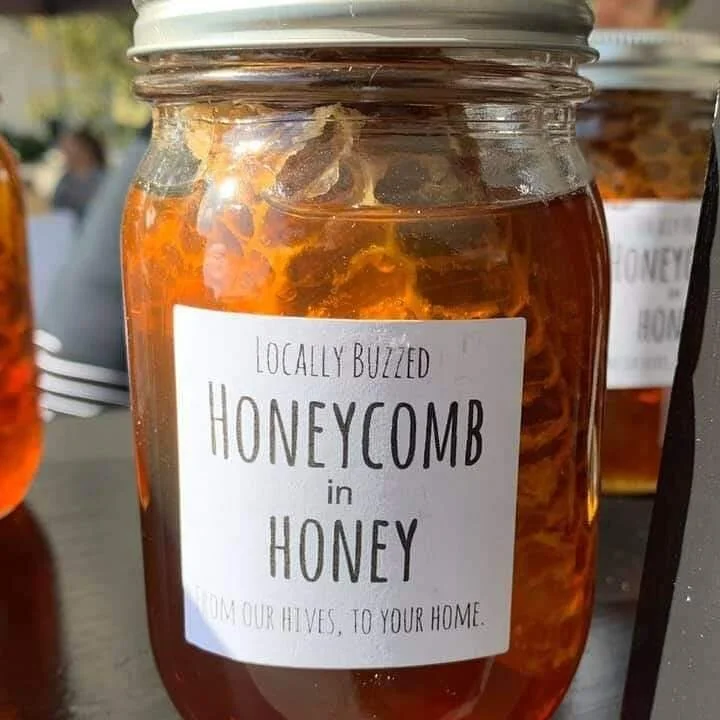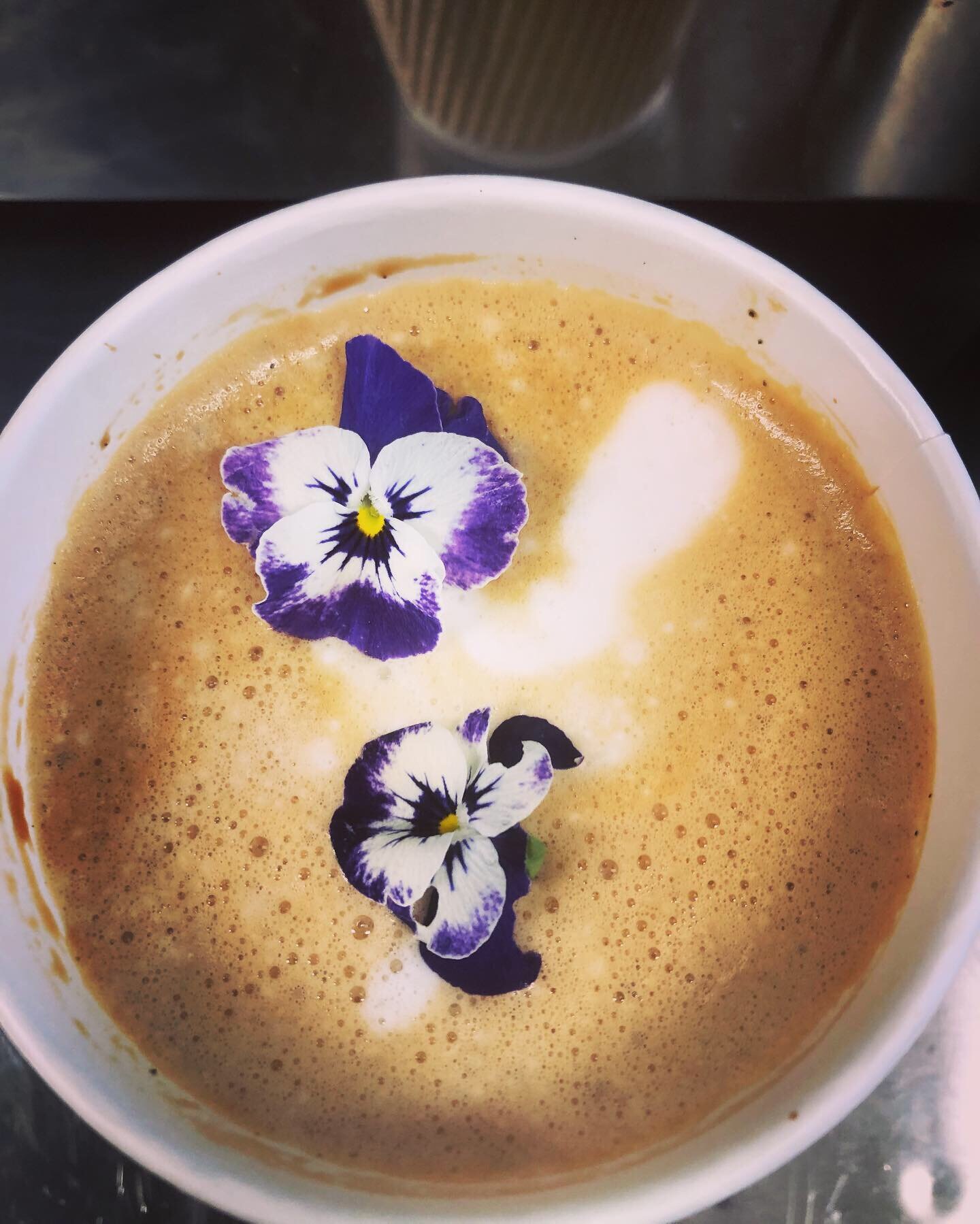“Here we have solutions that nobody else has... We’re applying the knowledge that we learned in school; not many pharmacists can say that in a daily setting.”
Photo by Cyma Shapiro
To Bill Henning, Pharm.D., pharmacy manager and minority partner of Giant Genie Pharmacy (2925 Senna Dr.), compounding is both an art and a bonus to offering traditional pharmacy services. The pharmacy is one of two compounding pharmacies in Matthews and has been in town since 2010.
“People have to go back to believing the pharmacy is a health-care provider,” said Bill. “We need to be that point of contact in the community because people can reach us.”
In the 17th to 19th centuries, compounding in the US was a function of physicians who prescribed and created their patients’ medications. In the 20th century, with the advent of mass-drug manufacturing, compounding decreased. Today, the industry is experiencing a resurgence as the importance and need for custom-made medications becomes more prevalent.
According to Wikipedia, pharmaceutical compounding is the creation of a particular pharmaceutical product to fit the unique need of a patient. To do this, compounding pharmacists combine or process appropriate ingredients using various tools. This may be done for medically necessity, such as to change the form of the medication from a solid pill to a liquid, to avoid a non-essential ingredient that the patient is allergic to, or to obtain the exact dose needed (not already readily available). It is also the basis for creating bio-identical hormones.
Approximately 5-10% of Genie Pharmacy’s business involves prescriptions for animals.
“It’s exciting…that we can have an impact on so many people from pediatrics to geriatrics,” said Bill. “I have a lot of colleagues who work for big-chain pharmacies…they are put in a more [prescriptive] role where they are expected to fill [a certain number of] prescriptions a day and can’t pick up the phone to talk with people. Here we have solutions that nobody else has... We’re applying the knowledge that we learned in school; not many pharmacists can say that in a daily setting.”
Photo by Cyma Shapiro
The pharmacy retains a staff of four pharmacists and a few drivers – a staple since they offer free delivery.
While the downside of compounding is the cost – approximately $40 - $60 more per month, the individual attention to medication, coupled with a drive for customer service and a “family feel” often makes these Mom and Pop pharmacies more desirable.
“I enjoy it because I wake up each day and get to be excited to come to work,” said Bill.











